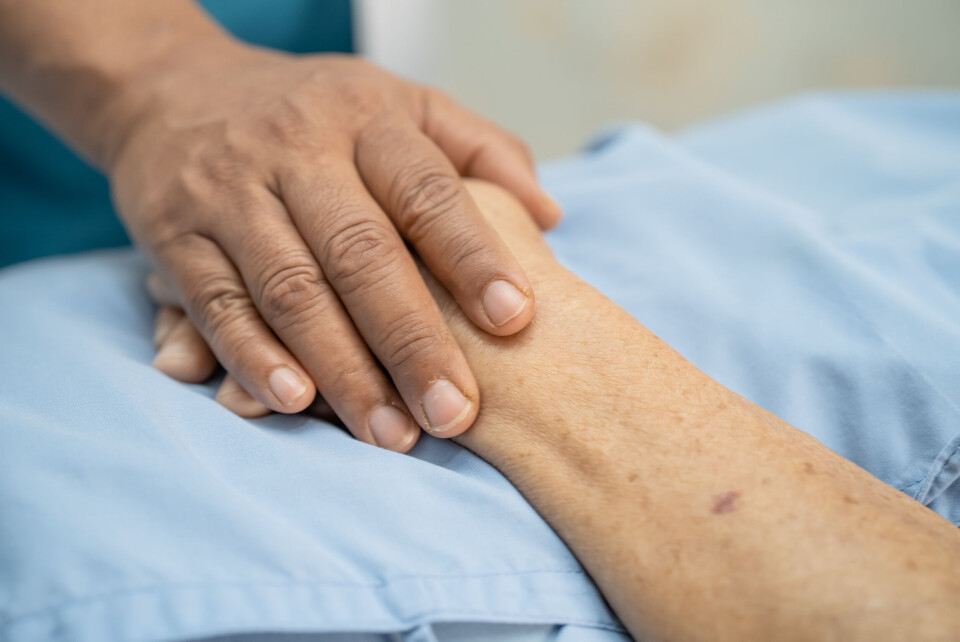-
French weekly weather forecast January 5 - 9: bitter cold and snow
Up to 10cm of snow is due in Brittany and Normandy. Toulouse, Dordogne and the Pays Basque will also see flocons
-
France santé promises better GP access
The initiative aims to improve GP access and reduce wait times in medical deserts across the country.
-
Free fraud service for UK homeowners living in France
Owners are encouraged to sign up for a free monitoring service from HM Land Registry to reduce risk
Palliative care ‘non-existent’ away from French hospitals, says report
France’s supreme audit court called for end-of-life care to be improved in retirement centres and at patients’ homes

Palliative care provision is non-existent beyond French hospitals, says France’s supreme audit court.
The Cour des Comptes, in a report, called for it to be strengthened in retirement centres and at patients’ homes.
It admitted France had made progress with its offer of palliative care since 2015.
However, it added, most of this improvement had taken place in hospitals, with 7,529 beds dedicated in 2021.
The court said up to 60% of patients who are reaching the end of their lives could benefit from palliative care, amounting to 380,000 people per year, and rising, due to the ‘significant’ ageing of the population.
Half of the patients who could benefit from better palliative care still do not have access to it, the court said and found that there are still regional disparities in the service offered. Around 20 departments do not have any specialised palliative care services at all, it added.
It found that in towns and cities, the number of patients receiving palliative care fell between 2017 and 2021 from 72,000 to 52,000, mainly due to a drop in the number of nursing and physiotherapy interventions.
It concluded that the objective of the Claeys-Leonetti law (2016 legislation that allows doctors and patients to choose deep and continuous sedation, but not death) to provide “total coverage of [palliative care] needs” had not yet been reached, despite government funding of €1.5billion to that end in 2021.
In response, the court called for a ‘big training plan’ for care workers in elderly care homes, as well as more mobile palliative care teams ‘across the entire country’. It highlighted that “only 1,600 practitioners out of 80,000 between 2020 and 2022 had had continued training in palliative care”.
It also said there should be a less ‘hospital-centric’ approach, with more palliative care services available ‘at home [and] in towns’.
It estimated that its recommended training plan - for both carers and nurses - would cost €56million, and added that there was a need for 200 more mobile services across the country. This would cost €73.6million to provide, it said.
The Cour des Comptes is France’s supreme auditing court and is independent of the government. It decides on matters of public funding and has financial jurisdiction.
Some of its latest recommendations have already been included in a recent Ministry of Health directive, which is set to be published in the Journal Officiel imminently. This officially confirms the government’s intentions to enact the proposals.
Right-to-die debate
The court findings come less than a week after a Senate report found that a law allowing euthanasia or more right-to-die procedures in France would be “dangerous” and “an appropriate response” to the current situation. Among its recommendations, it said that palliative measures should be improved instead.
Read more: Introducing euthanasia in France would be dangerous, say senators
The French government is currently considering a right-to-die bill, and grappling over whether other similar laws in Europe could be applied in France.
The minister currently in charge of the issue, Health Professions Minister Agnès Firmin-Le Bodo, has said she is “particularly keen to strike a balance between opening up this new right to French citizens (and) the legitimate concerns of professionals”.
France’s health minister, François Braun, has so far remained balanced on the issue, saying only that such a law would “profoundly change our society and our relationship with death”.
Related articles
French citizens’ council votes for assisted dying (with conditions)
France to hold national debate over legalising assisted suicide
























